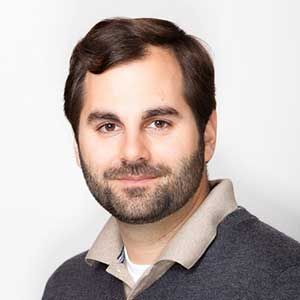Research focus
Michael C. Frank is a developmental psychologist and cognitive scientist. His work helps us understand how we go from being speechless infants to toddlers who can talk and understand language. He uses computational models and experiments with infants, children, and adults to understand human language acquisition and its relationship to other aspects of cognition, including social interaction and conceptual structure.
What I have achieved during the fellowship
Our fundamental question is about the nature of the learning mechanisms that allow language acquisition. We instantiate hypotheses about learning as computational models, often using techniques from machine learning. But the data on which these theoretical models are trained and evaluated is often extremely limited and often represents only English or a handful of languages. During the fellowship period, my lab has developed and expanded data repositories for children’s language input (childes-db) and their learning outcomes (Wordbank). These two repositories then enable computational research on the nature of learning mechanisms using a dozen or more languages. This resource has enabled us to uncover consistencies in the information sources used by children as they discover their first words.
My future plans
Language learning research presumes a standard model of learning: that child-directed speech input – particularly within high-quality, one-on-one interactions – drives the learning of sounds, words, and grammar. Higher quantities of input are assumed to lead to greater uptake (larger vocabulary) and faster processing. Although this standard model is widespread, it has not been fully formalized so as to connect observable measurements of input quantity to specific learning achievements. In my lab’s theoretical work, we are attempting to formalize these relationships and make quantitative predictions about children’s learning. Further, this standard model is based on a very narrow slice of the human population. My lab strives to build data repositories to aggregate and standardize data from across the world’s languages so as to create datasets on which to evaluate this learning framework.


